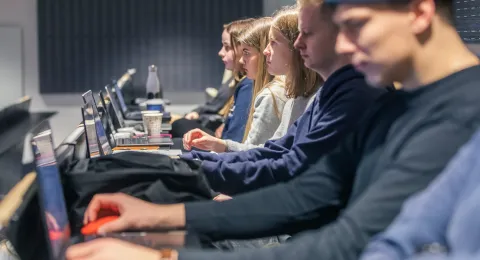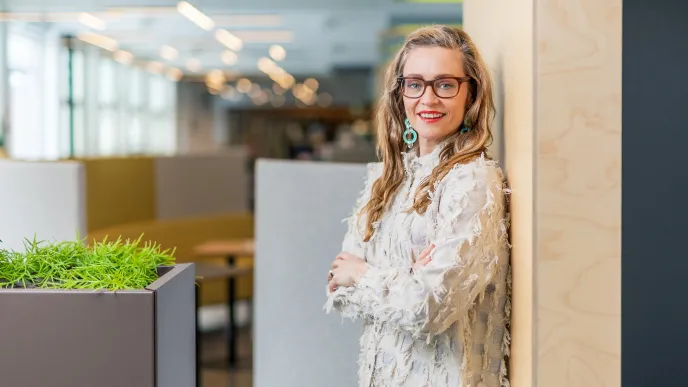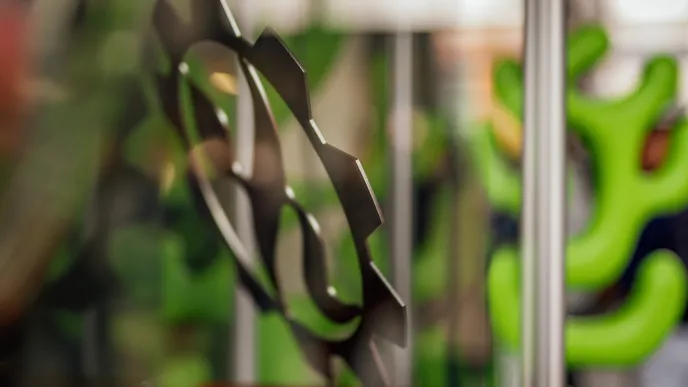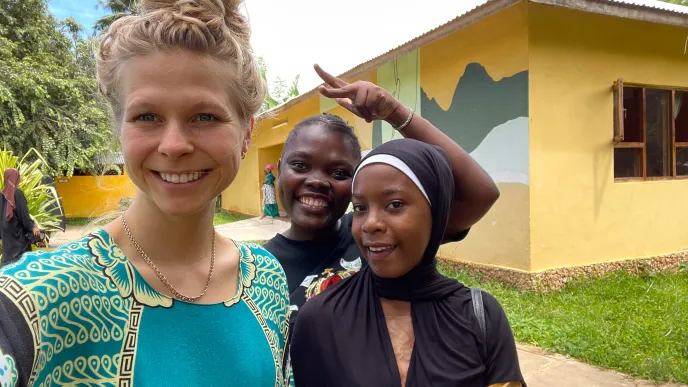1 University's perspective
"The International Entrepreneurship Challenge (IEC) is important because all three parties win.
Companies profit from concrete strategy proposals on how to grow and internationalize. Students get concrete experience in working for a growth company or SME and in strategy development. As a school of business, we can help the corporate world and execute the so-called third mission of universities – societal impact – and round up corporate partners for research collaboration.
The annual course takes the entire autumn semester, and in autumn 2021, a total of 66 students signed up from the Master's Programmes in International Business and Entrepreneurship (MIBE) and International Marketing Management (MIMM).
Students compose teams, and each team has its own partner company. All teams are assigned a mentor, and the mentors may come from both within and outside of LUT.
From the corporate side, we have eight entrepreneurs from highly different fields. What most of them have in common is scalability: they can operate at higher capacities without additional resources. The reason for this is that most of their offerings concentrate on cloud services or other digital applications.
This year, a Dutch company and a Russian company opening an office in Finland in October are involved. Some of the businesses are Finnish and aiming to branch out abroad. Some of the growth companies involved already employ LUT alumni.
The course aims to be practical. Teams also wish to create market innovations for products or services sold by the companies. The students evaluate the internationalization potential, utilize market research, analyze data for the company and prepare an internationalization plan. Growth companies should end up with a ton of ideas for their internationalization process."
Professor Olli Kuivalainen, LUT School of Business and Management, in charge of the IEC course


2 Company's perspective
"Bionido is an LUT spin-off and growth company. We are based in Finland and have developed Cupponen, a fiber-based, compostable seedling pot for salads, herbs and flowers.
We want to promote low-plastic farming through cross-disciplinary development work. We aim to reduce the use of plastic and increase the reuse and recycling of materials used in farming in a way that aligns with tightening EU regulations.
Urbanization is an important challenge with no end in sight. There is already a shortage of clean water and agricultural land in the world. In the future, agriculture will face increasingly demanding circumstances: drought, cold, erosion and sudden weather changes.
Cupponen is a bio-based seedling pot that commercial growers can also use for pre-growing. The pot can be planted directly into the ground where it will decompose, but it is designed primarily for greenhouse cultivation. The product can be used for soil conditioning after cultivation and composting. Consumers can also use Cupponen to grow flowers, herbs and vegetables. Texts or logos can be printed on Cupponen's outer surface.
Two commercial growers in Finland have tested the product and concluded that it functions as it should. The product is patented in Finland and its international patents are pending.
We have already decided on a manufacturer with whom we are starting production. In other words, we will not be making the product from start to finish ourselves. We are pursuing a 10 per cent market share in Europe."
Co-Founder Eeva Jernström, former Vice Dean of the LUT School of Engineering Science; former Director of the Centre for Separation Technology
Co-Founder Juha Varis, Vice Dean and Professor of Production Engineering, LUT School of Energy Systems
3 Student's perspective
"This seems like a course all students today should take to fully prepare for the professional world. Merely dabbling in theories will backfire in the world of work if you have not had a chance to put the theories to practice during your studies.
Each IEC team consists of about five students, and at least one of them must be other than Finnish. In our team, three nationalities are represented. Each team gets an opportunity to make a sales pitch to the company that interests the team most. Based on the pitches, each team is assigned a company, and a few companies got to work with more than one team.
I believe that we business students give them a new perspective on the commercialization of innovations. LUT University's unique symbiotic relationship between technology and business enables great innovations to end up on the market. Bionido has a small number of employees and will no doubt benefit from additional pairs of critical eyes examining their operation.
Cupponen interested me the most because of its environmental impact on our everyday lives. Food production accounts for a large part of our carbon footprint, and all concrete actions to reduce it are more than welcome.
Ecological products usually cost a bit more than regular products. One of the most interesting aspects of marketing studies is to find ways to entice customers to switch from low-cost, less ecological products to alternatives that cost more but pollute less.
The greatest challenge for Bionido is meeting the company's ambitious challenges even though it does not yet have a fully finished product or paying customers. The sector is not the easiest because it is not as relatable as, for instance, cloud services and their use.
Master's student Timo Oksanen, LUT School of Business and Management

Companies in the IEC in 2021










